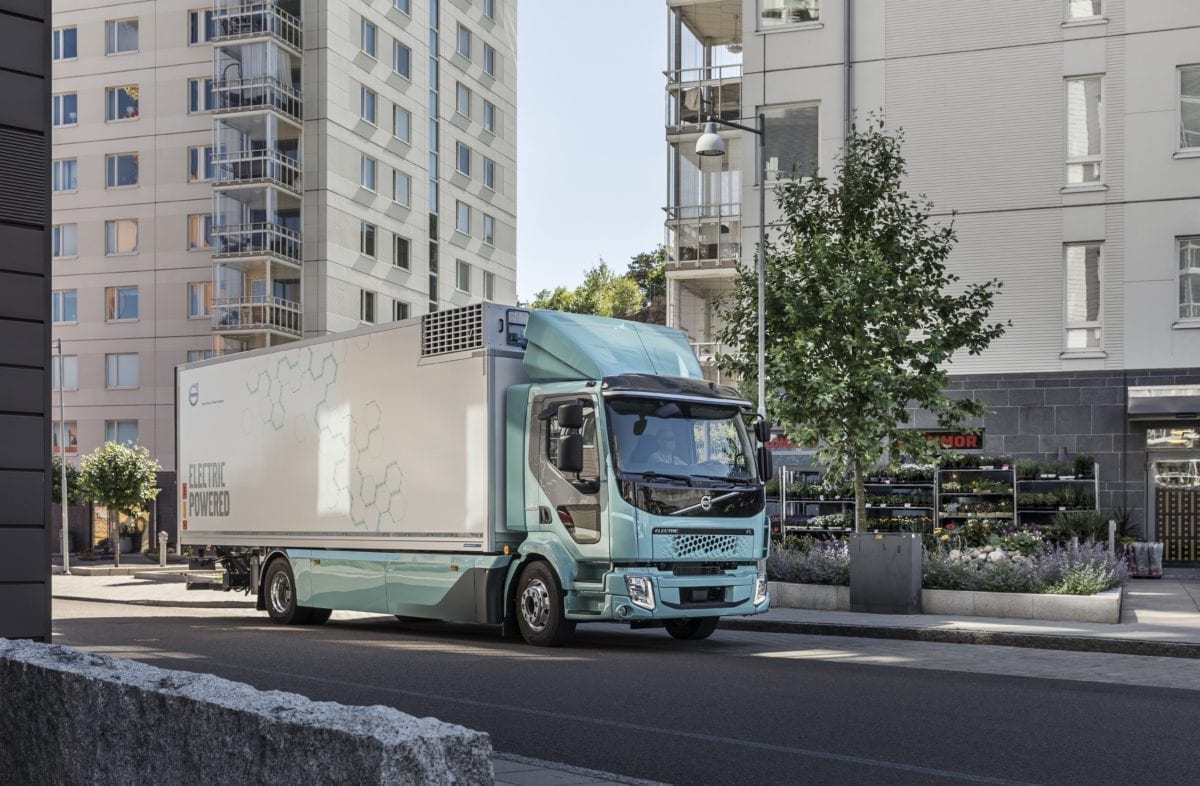Looking back at the major milestones and announcements of 2019, it was a tremendous year of progress across the clean transportation sector. We saw some of the nation’s largest fleets make public commitments to deploy zero and near-zero emission vehicles, while OEM’s, technology providers, and fuel suppliers continued to expand the next generation of advanced technologies and low carbon fuels.
With an ever-increasing global awareness about the impacts of—and acceleration of—climate change, the world’s leading corporations and governments are not only hastening their commitments on environmental sustainability but scaling their actions as well. This trend will unquestionably continue to rapidly grow in the next several years.
Driving Change in 2019
One of the most noteworthy industry milestones celebrated in 2019 was Daimler’s delivery of its first two all-electric heavy-duty trucks to customers Penske Transportation Solutions and NFI. The Freightliner eCascadia Class 8 trucks are now being used to test and collect data under daily driving conditions.
Volvo Trucks partnered with 15 organizations to launch Volvo LIGHTS, which will demonstrate the ability for heavy-duty, battery electric trucks and equipment to reliably move freight between Southern Calif. ports and warehouses throughout the region.
While electric vehicles certainly dominated the 2019 headlines, natural gas tractors and renewable natural gas continued to post record sales.
Anheuser-Busch also announced that it will deploy 21 Class 8 all-electric trucks built by BYD to distribute beer in Southern California. In a similar project, Frito-Lay committed to replacing all its existing diesel-powered freight equipment with zero and near-zero emission technologies at its Modesto, Calif. location.
Advancements in hydrogen fuel cell technology continued to make news as well. Kenworth and Toyota partnered to develop a hydrogen fuel cell heavy-duty, which was unveiled in April. The ports of Los Angeles and Long Beach will receive 10 of these trucks this year to move containers from the ports to distribution centers across the region. And Nikola also unveiled working prototypes of its hydrogen fuel cell Class 8 trucks, along with plans to develop a nation-wide network of hydrogen-fueling stations.
While electric vehicles certainly dominated the 2019 headlines, natural gas tractors and renewable natural gas continued to post record sales. UPS made several industry-leading commitments in 2019 with an announcement in May about the largest ever purchase of renewable natural gas by a company in the US, and then a follow up November release confirming the addition of 6,000 near-zero emission natural gas trucks to the company’s fleet. All of this is on top of the 4,500 natural gas trucks already running in the company’s fleet.
Clean Tech is the Future
The achievements of the last year illustrate a foundational shift in commercial transportation as companies—both the technology providers and fleets—continue to make billion-dollar investments in clean transportation technologies. The growing commitment to aggressive and large-scale action on climate change is signaling that we are now past the point of no return with only one path forward—to move towards a future with lower carbon transportation technologies and fuels.
Companies that demonstrate a move to environmentally responsible supply chains will be rewarded, while those that don’t risk being left behind by their customers. Consumers vote for their favorite brands in the grocery-store aisles, or when shopping online every single day. Likewise, we are seeing carrier contracts more frequently being awarded to those with a clean transportation technology portfolio. Simply put, buying decisions are increasingly being based on both economic and environmental sustainability metrics.
Companies that demonstrate a move to environmentally responsible supply chains will be rewarded.
Leading fleets now recognize that low carbon transportation is not only going to be the price of admission in the near term, but a strategic differentiator and important selling point. Thus, those that understand how to leverage the evolving landscape of advanced, clean transportation technologies will be more successful.
As an example, 15 of the nation’s most prominent fleets recently coordinated to launch the ACT (Advanced Clean Transportation) Fleet Forum; a peer-to-peer network to share best practices with other end-users, and to engage with top low carbon fuel and technology suppliers. This group grew out of the annual ACT Expo conference as way to provide a year-round education and networking opportunities. Related, the annual ACT Expo, which provides a comprehensive showcase of all the latest advanced technologies and low carbon fuels, will take place May 11-14, 2020 in Long Beach, California. Continuous learning and a drive for sustainable transportation improvement is no longer a passing fad, but an increasing foundation of today’s commercial fleet world.


